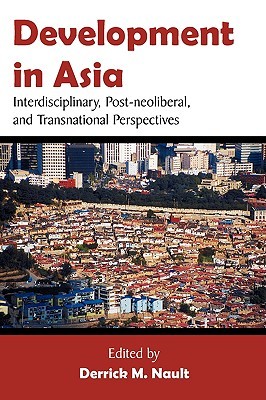
- We will send in 10–14 business days.
- Publisher: Brown Walker Press (FL)
- Year: 2008
- Pages: 276
- ISBN-10: 1599424886
- ISBN-13: 9781599424880
- Format: 15.2 x 22.9 x 1.5 cm, minkšti viršeliai
- Language: English
- SAVE -10% with code: EXTRA
Development in Asia (e-book) (used book) | bookbook.eu
Reviews
Description
"Development" is one of the most ubiquitous yet least understood concepts of our age. It is something all governments claim to be engaged in and is considered desirable by scholars, activists, policymakers, and laypeople alike. Yet it is also a highly contested term. For some, development is simply a matter of economic growth. Others maintain that it must entail improving life expectancy, literacy, education levels, and access to resources. Others yet, disillusioned by the results of development initiatives, have rejected development altogether, equating it with a self-serving aid industry that entraps the poor in a vicious cycle of dependency. Still, critics argue these "post-development" theorists merely replicate earlier doctrines of development and have themselves become part of the problem they wish to transcend. This book, a collection of works by scholars of development, examines the theory and practice of development and its implications and varied meanings in Asian contexts. It attempts to understand development both in its objective and constructivist senses. That is, it examines how societies and nations have developed over time and how leaders, experts and governments have attempted to shape these same societies and nations. It also analyzes development in civil society and how non-state actors have conceived, participated in and been affected by the process. Has true development been occurring in Asia? Is it possible to direct development? How are real people affected by development? Should the concept of development be retained or discarded? These are a few key questions covered in this book.
EXTRA 10 % discount with code: EXTRA
The promotion ends in 22d.06:22:21
The discount code is valid when purchasing from 10 €. Discounts do not stack.
- Publisher: Brown Walker Press (FL)
- Year: 2008
- Pages: 276
- ISBN-10: 1599424886
- ISBN-13: 9781599424880
- Format: 15.2 x 22.9 x 1.5 cm, minkšti viršeliai
- Language: English English
"Development" is one of the most ubiquitous yet least understood concepts of our age. It is something all governments claim to be engaged in and is considered desirable by scholars, activists, policymakers, and laypeople alike. Yet it is also a highly contested term. For some, development is simply a matter of economic growth. Others maintain that it must entail improving life expectancy, literacy, education levels, and access to resources. Others yet, disillusioned by the results of development initiatives, have rejected development altogether, equating it with a self-serving aid industry that entraps the poor in a vicious cycle of dependency. Still, critics argue these "post-development" theorists merely replicate earlier doctrines of development and have themselves become part of the problem they wish to transcend. This book, a collection of works by scholars of development, examines the theory and practice of development and its implications and varied meanings in Asian contexts. It attempts to understand development both in its objective and constructivist senses. That is, it examines how societies and nations have developed over time and how leaders, experts and governments have attempted to shape these same societies and nations. It also analyzes development in civil society and how non-state actors have conceived, participated in and been affected by the process. Has true development been occurring in Asia? Is it possible to direct development? How are real people affected by development? Should the concept of development be retained or discarded? These are a few key questions covered in this book.


Reviews